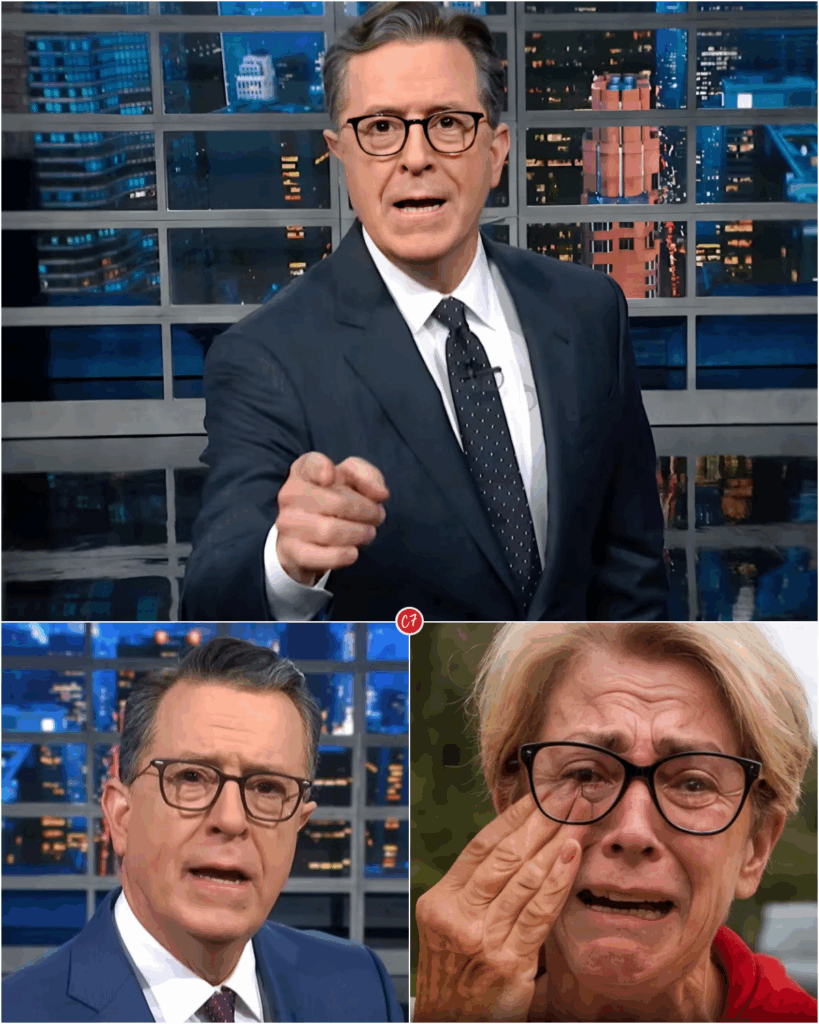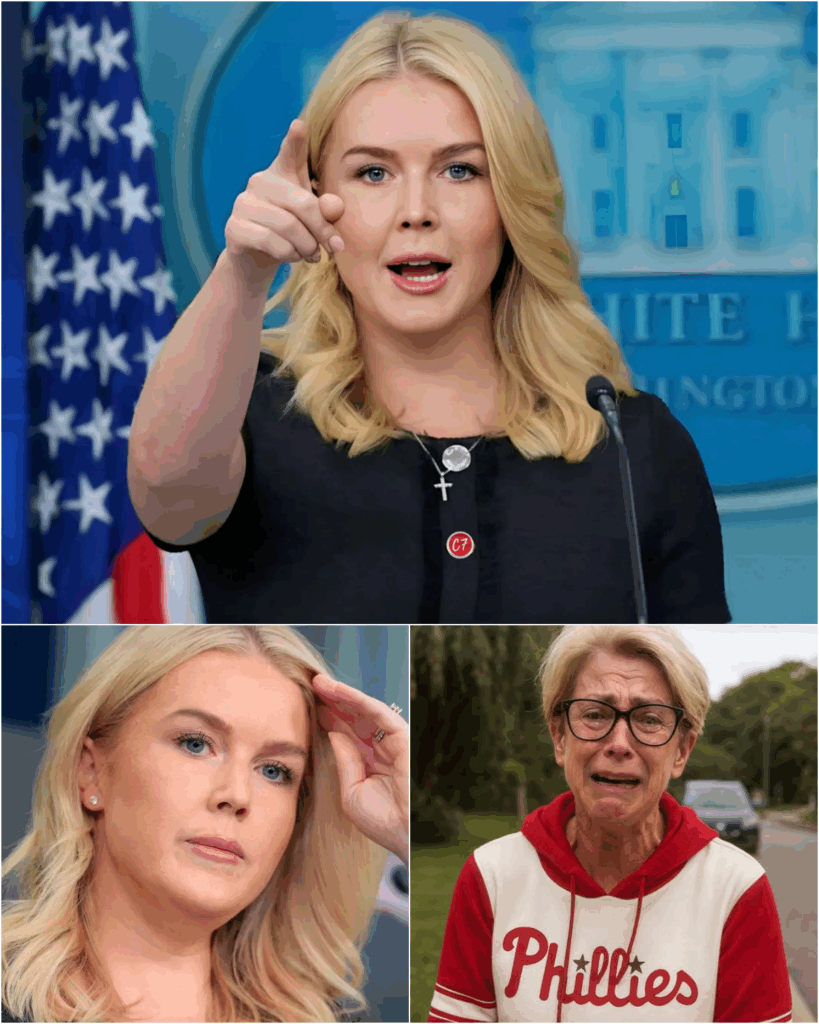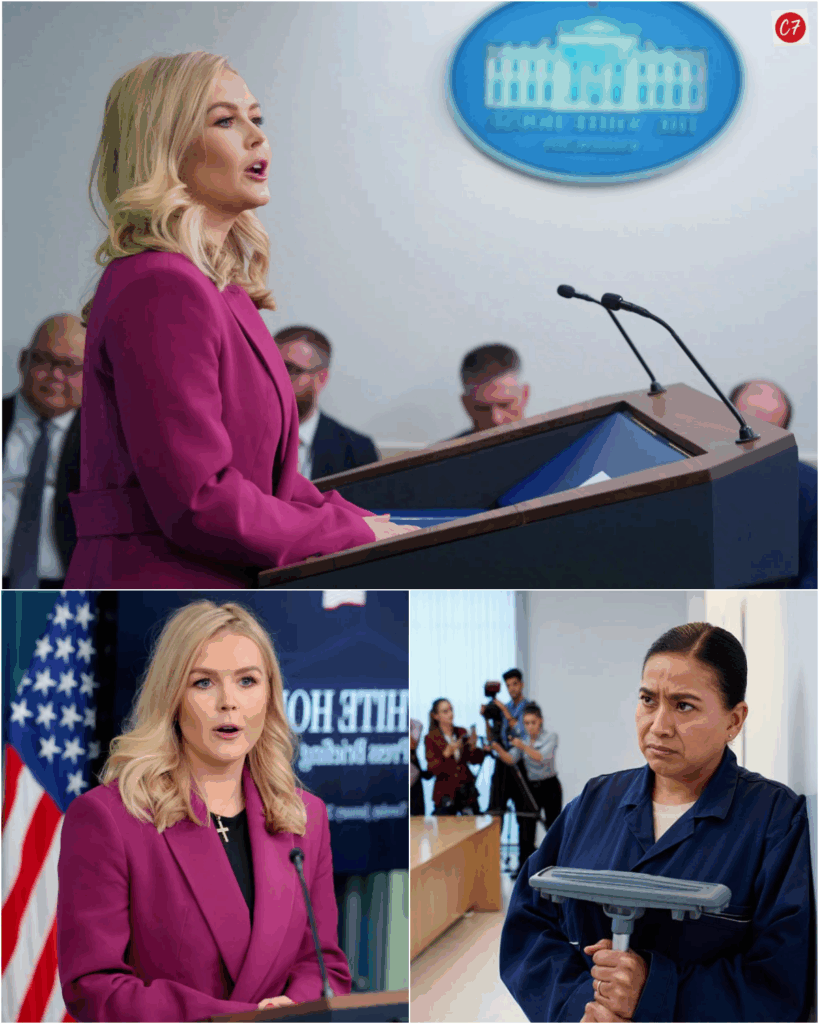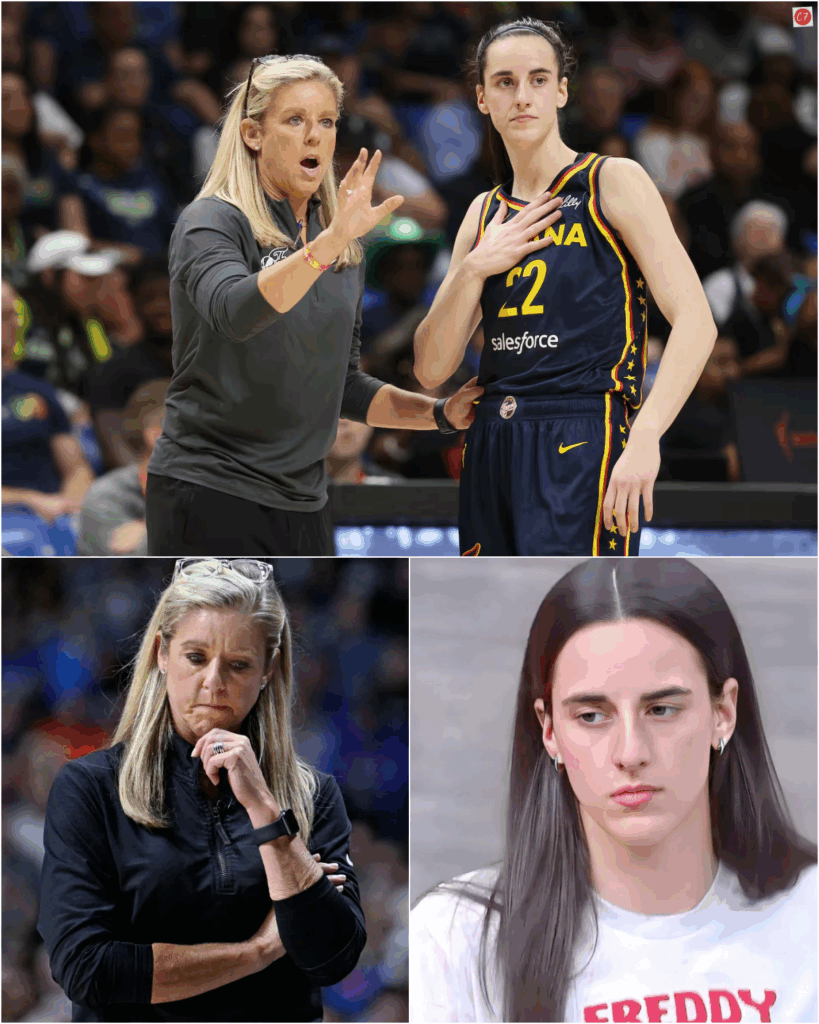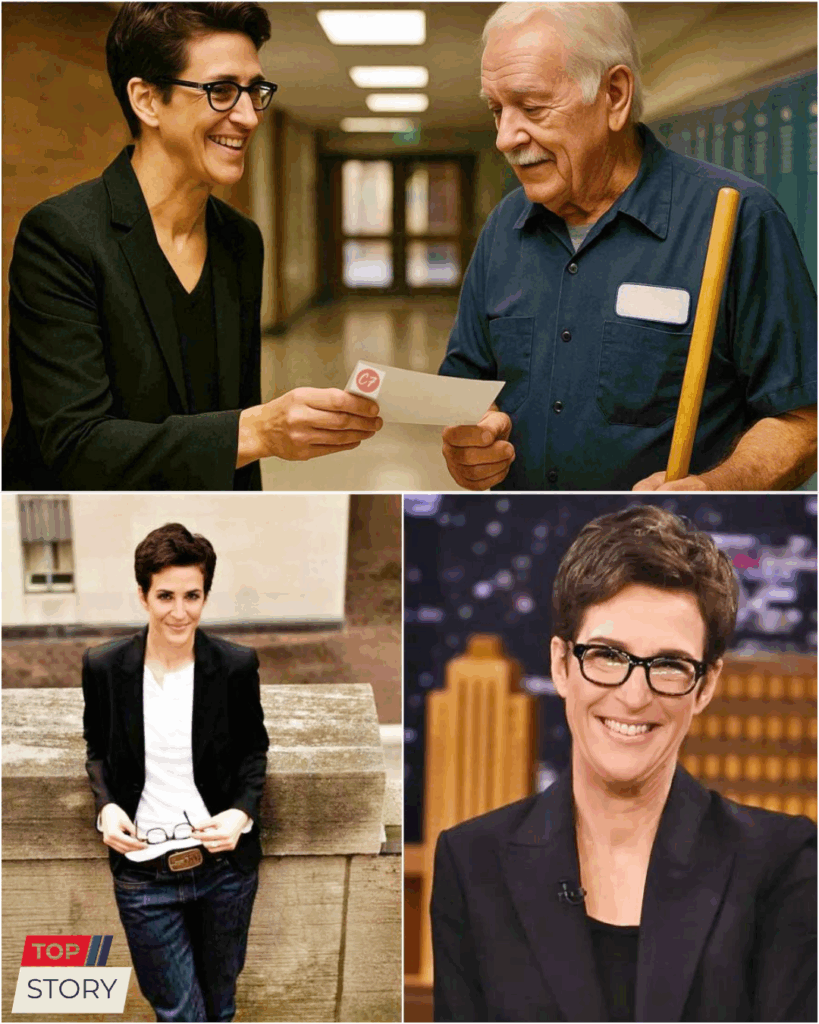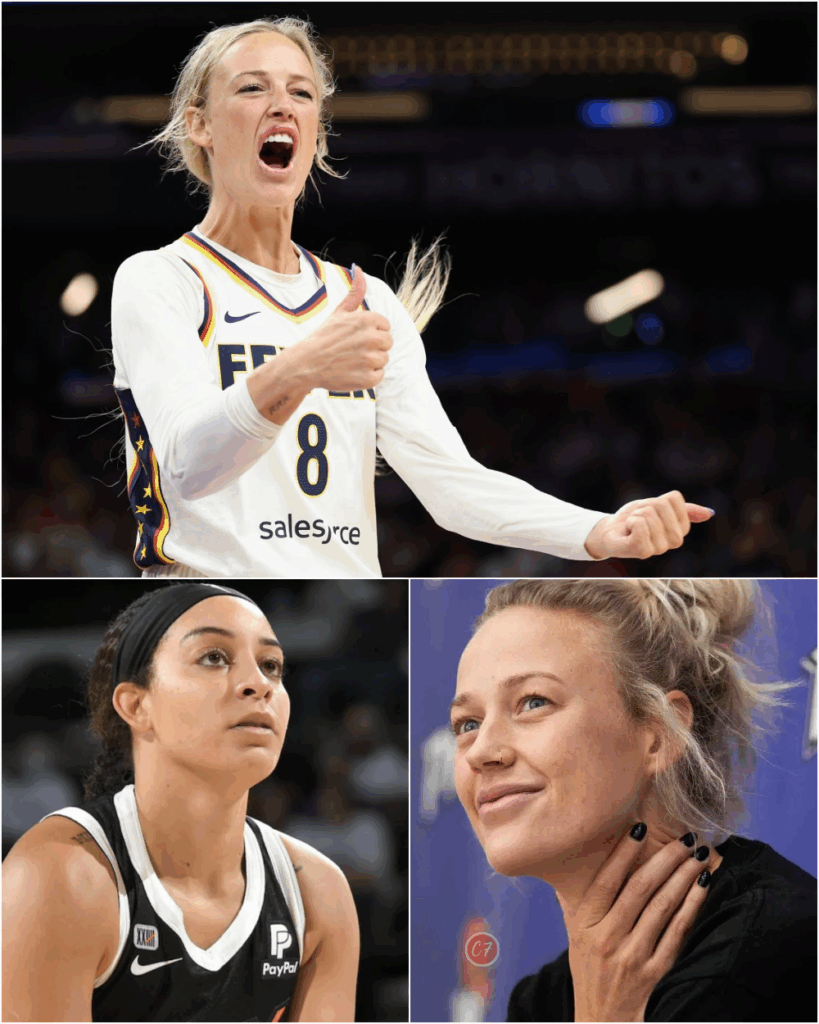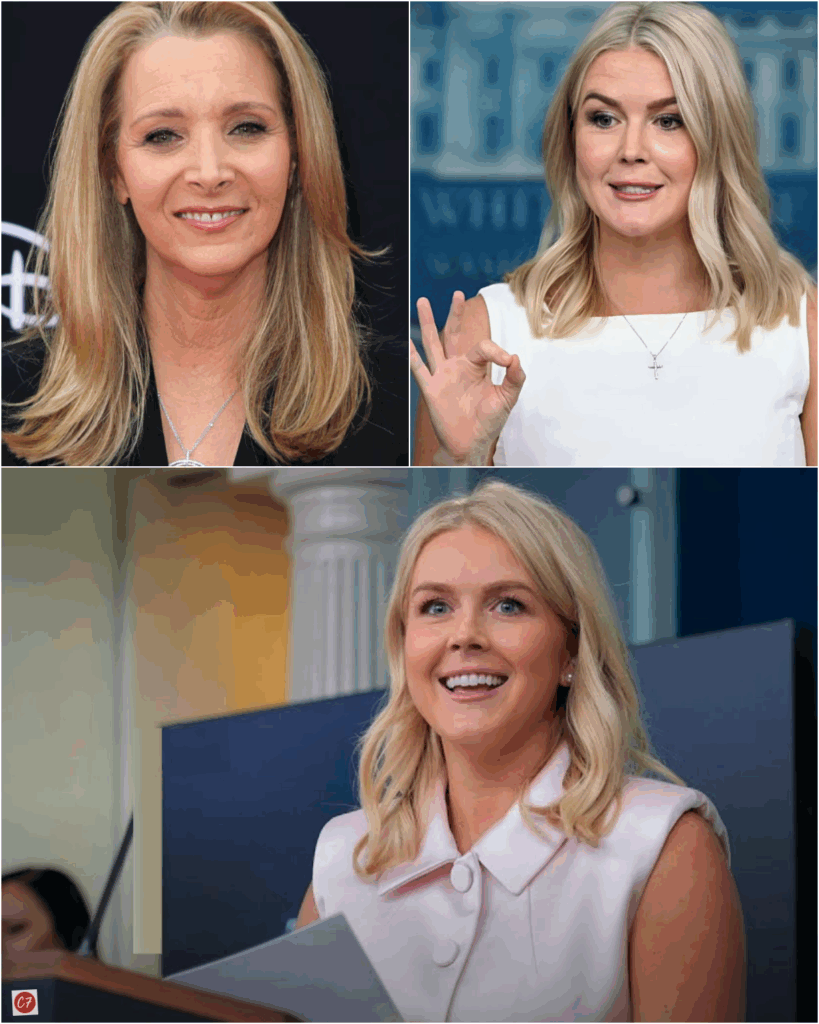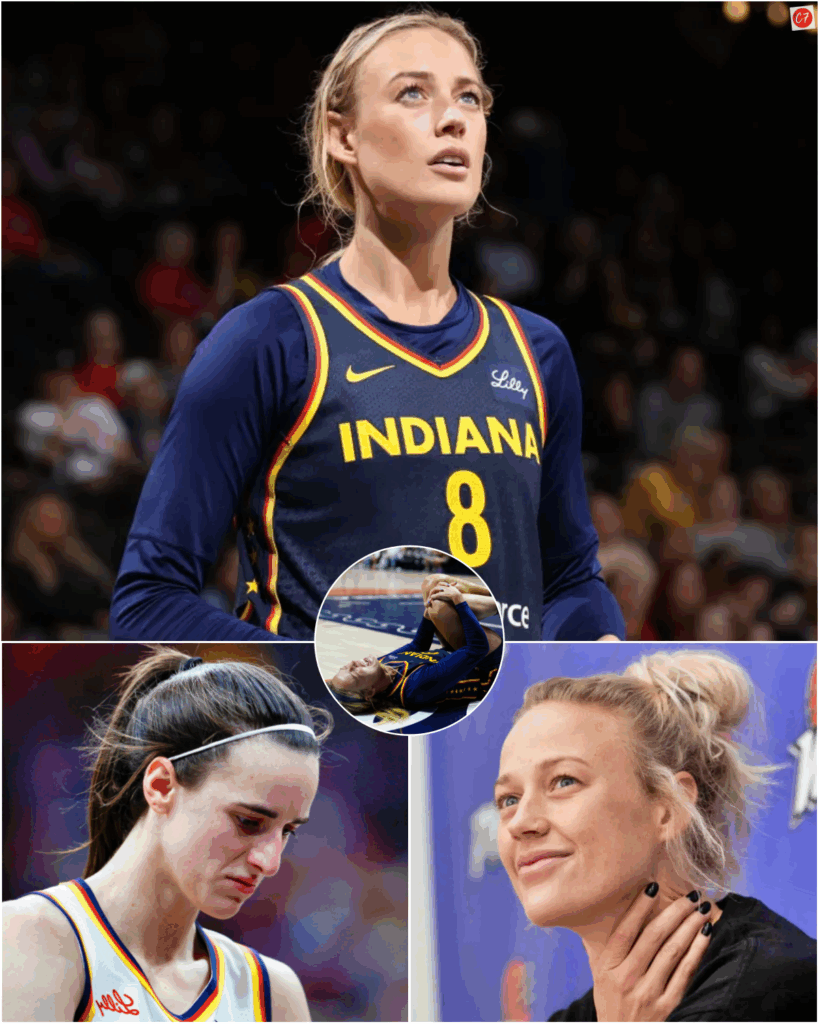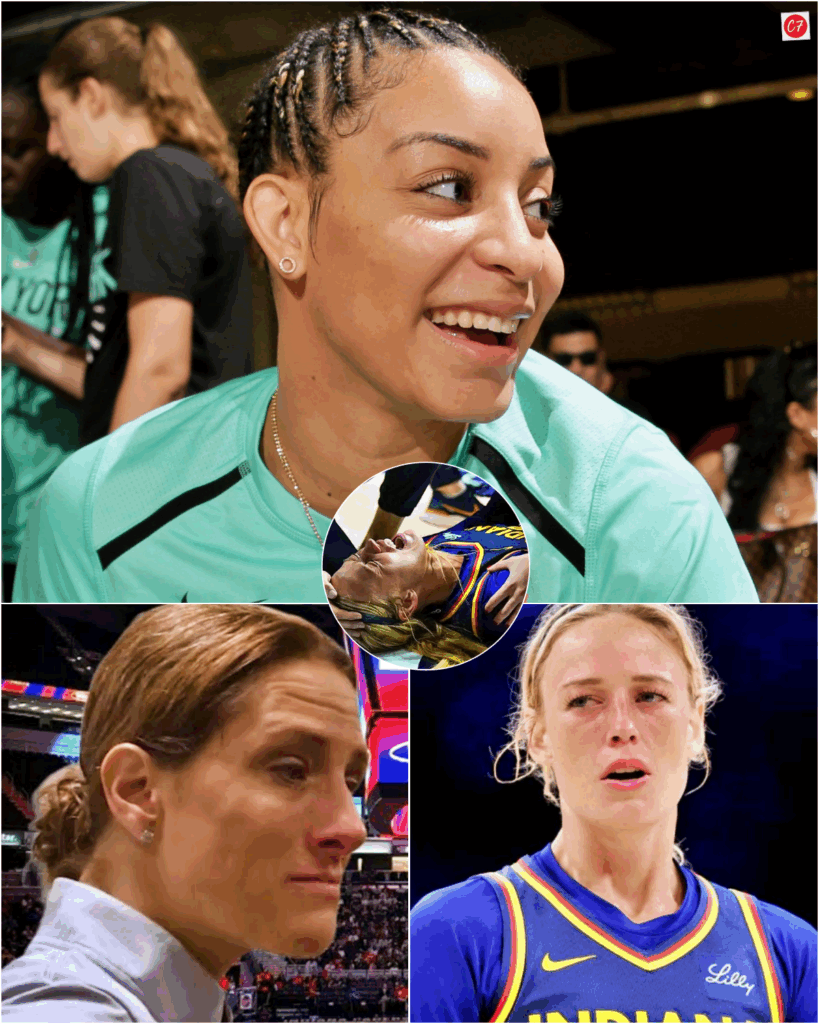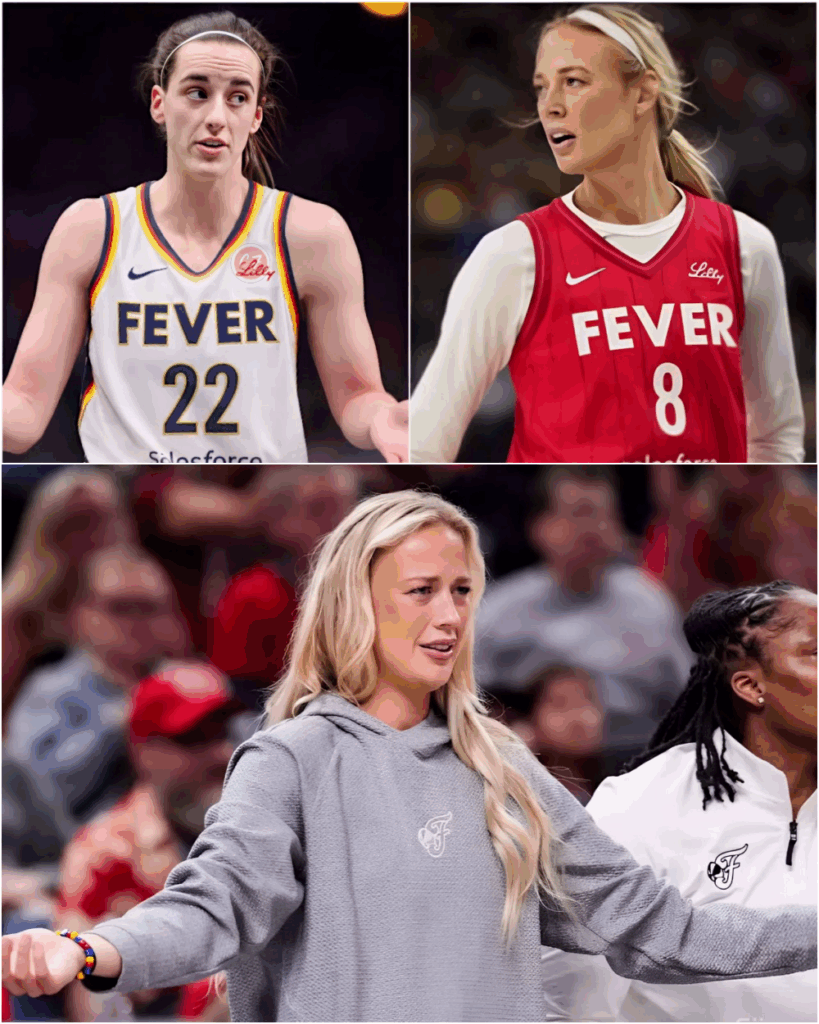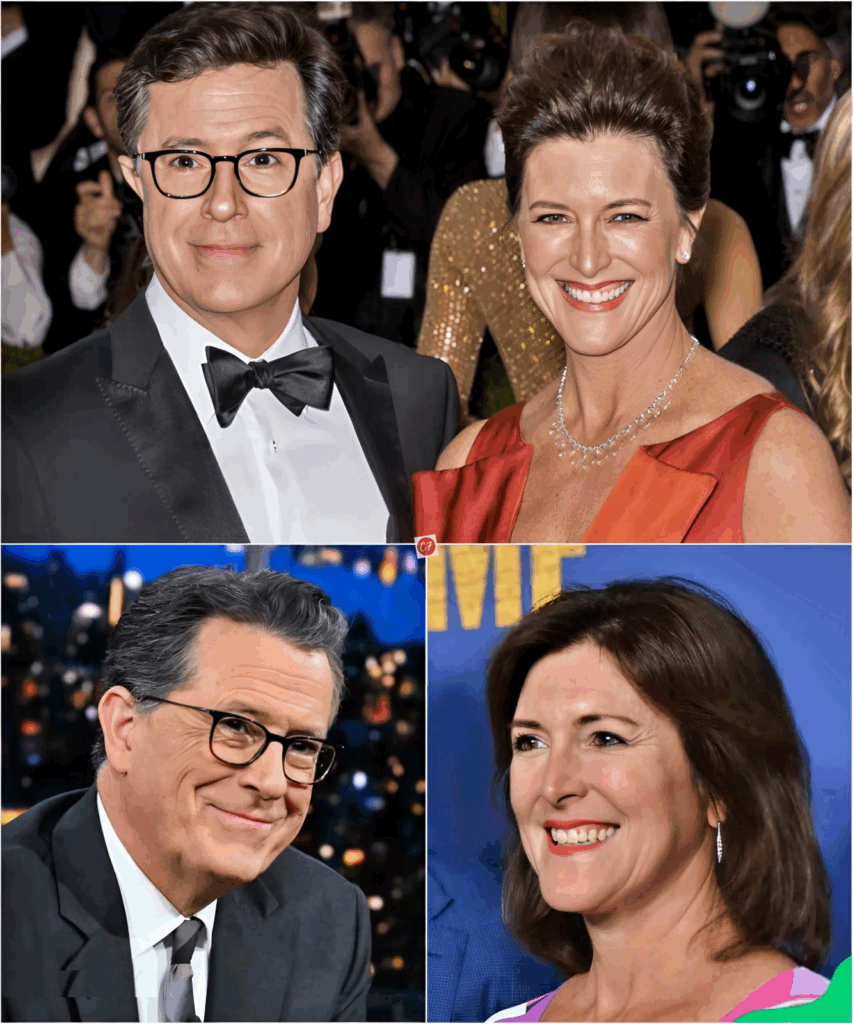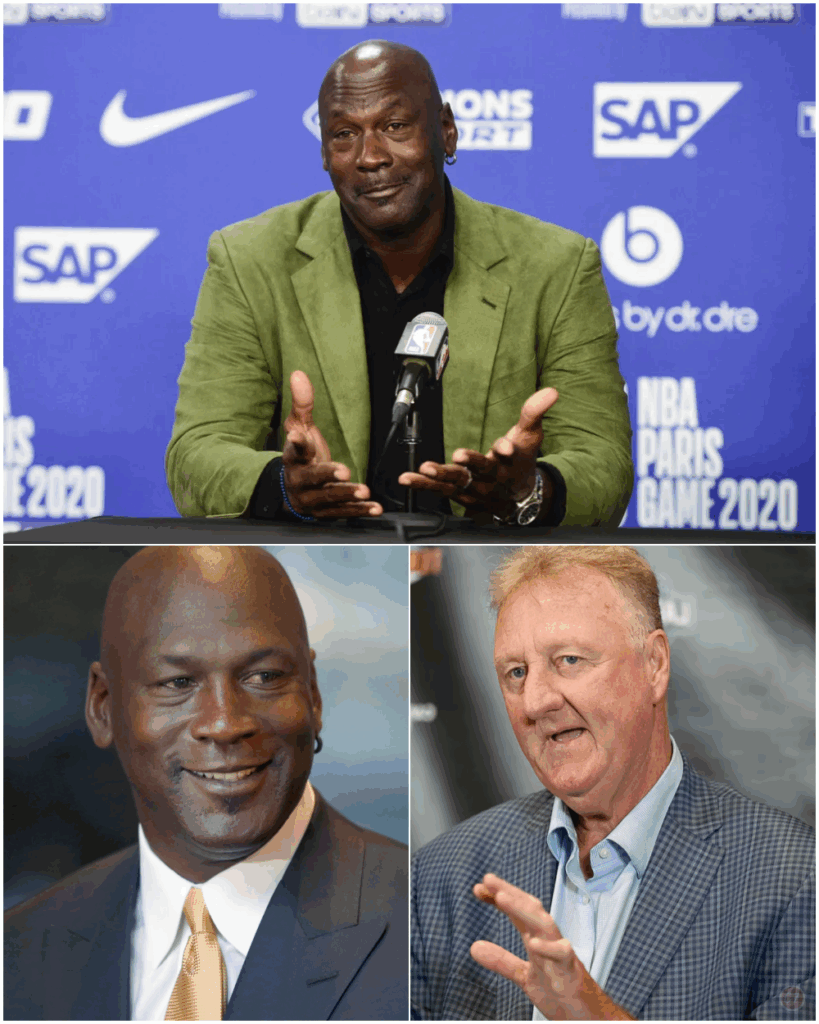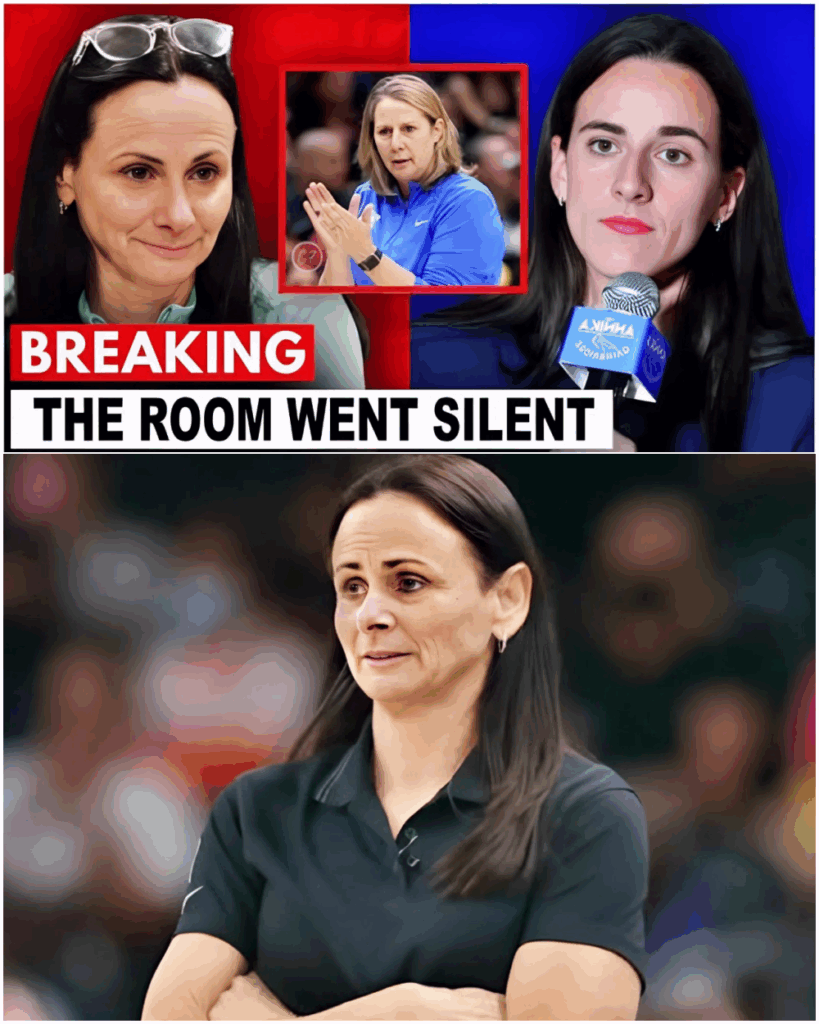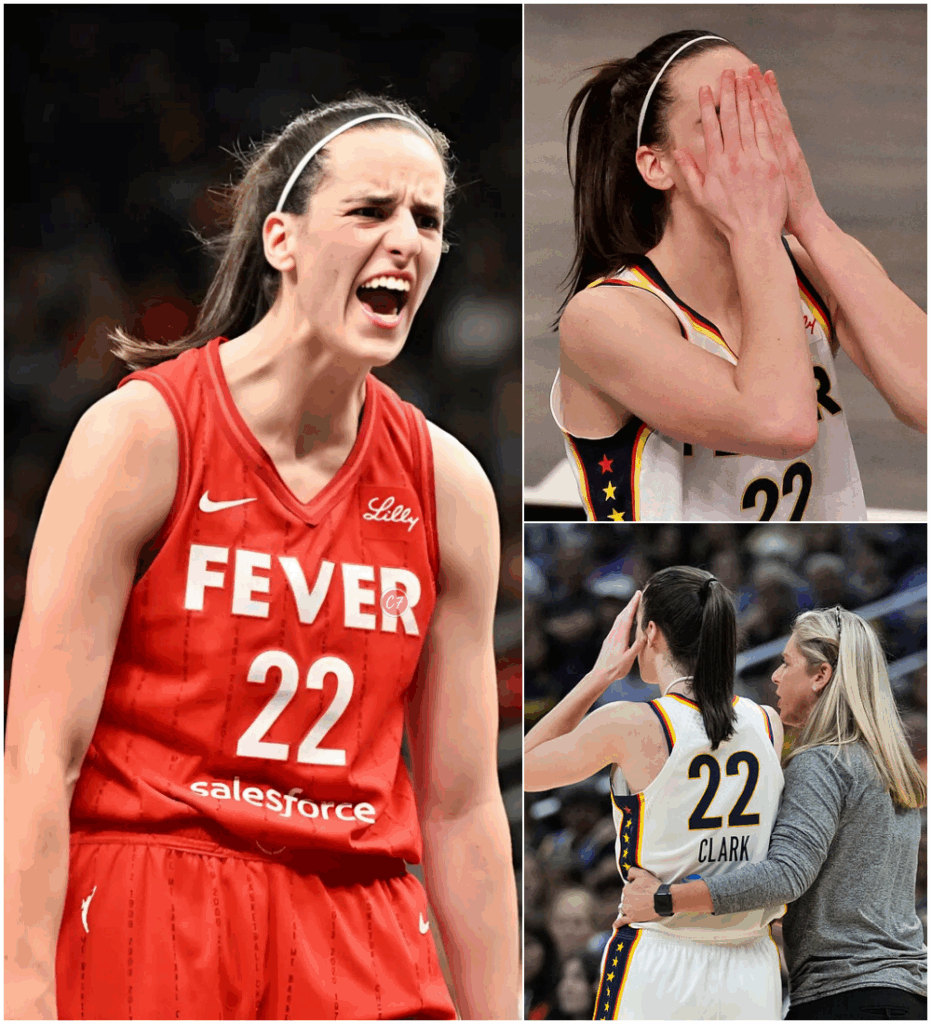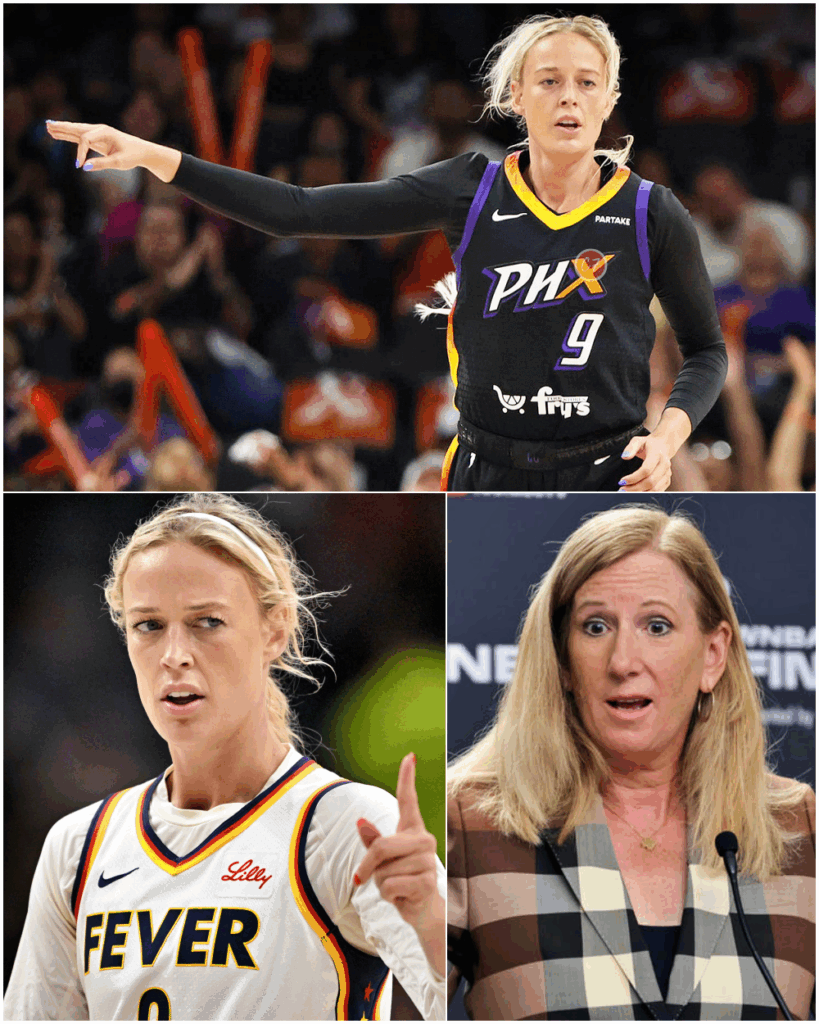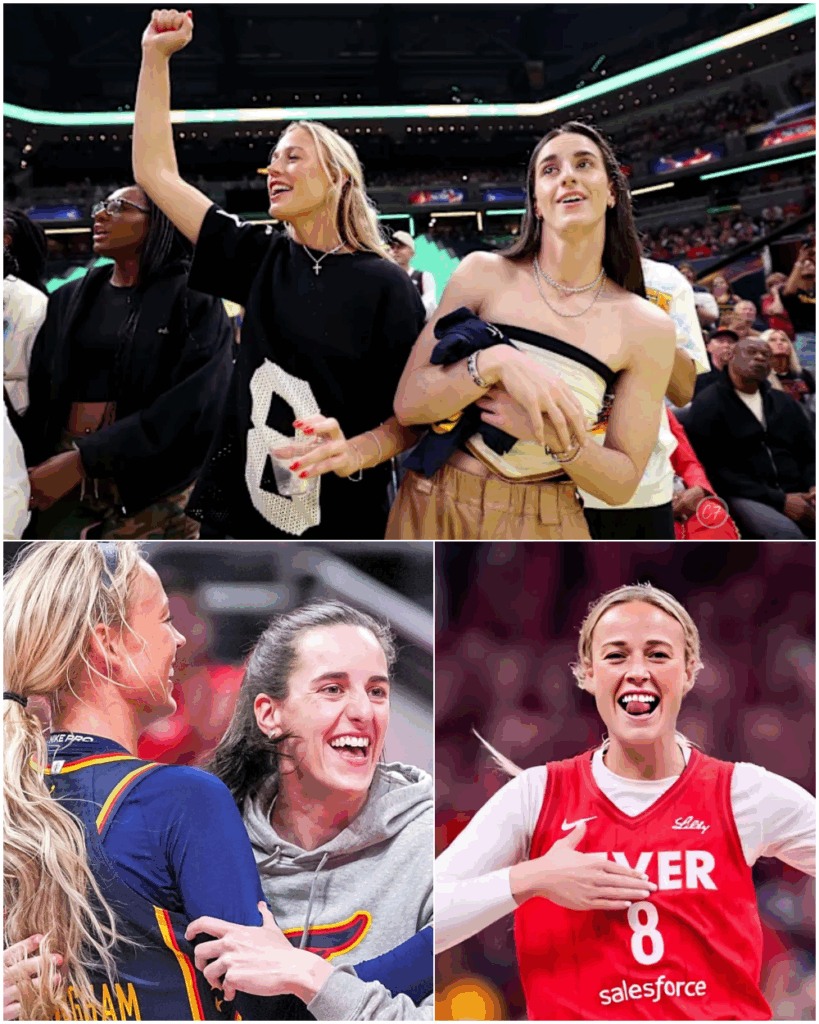The Unapologetic Rise of Sophie Cunningham: How a Fiery Underdog Became the New Soul of the WNBA
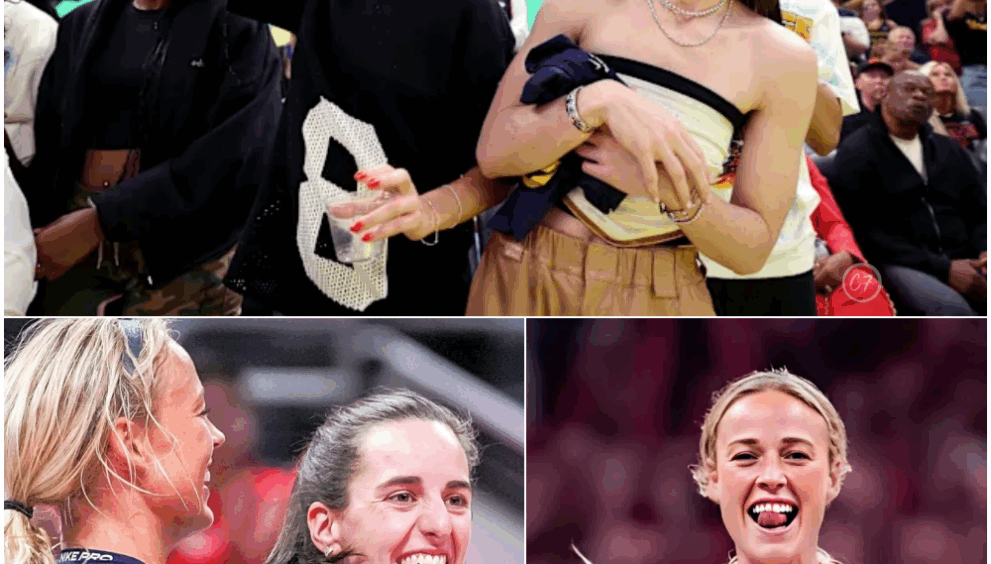

The sound hit first.
Not the whistle. Not the roar of the crowd. It was the flat, heavy thud of Caitlin Clark’s body hitting the hardwood, followed by a squeal of sneakers cutting too sharp on polished maple. A half-second later, twenty thousand breaths caught in unison.
The Gainbridge Fieldhouse scoreboard read 3:42 in the second quarter, Indiana Fever vs. Las Vegas Aces — but in that frozen moment, no one cared about numbers. All eyes locked on the baseline.
Clark was still on one knee, head bowed, one hand pressing her ribs. And then, a flash of blonde — moving fast, low, deliberate.
Sophie Cunningham didn’t glance at the refs. She didn’t check if the cameras were on her. She stepped in, her stance wide, jaw tight, eyes fixed on the Aces player who’d made contact. No words, just presence — the kind that made the other player stop mid-step and the entire court recalibrate.
For three full seconds, the arena noise dipped under a strange, electric silence. You could hear the clink of a water bottle being set down two rows back. You could hear someone’s phone hit the concrete under the bleachers.
And then — the whistle. Play resumed. But something had shifted.
By halftime, the clip was already clipped, captioned, and shipped to millions of feeds. SportsCenter replayed it three times before the next segment. On Twitter, hashtags #StandWithSophie and #BodyguardEnergy started climbing. The debate began before the game even ended: loyalty or overreaction? Protection or provocation?
The WNBA made its position clear the next morning: a $3,000 fine for “unsportsmanlike conduct.” Sophie accepted it without a statement.
But the fine wasn’t the headline anymore. She was.
Her rise didn’t start here. In Columbia, Missouri, Sophie had been a household name before she graduated high school — a relentless competitor at Rock Bridge, rewriting record books with a style that combined fearless drives and sniper-like threes. Staying local for college wasn’t a compromise; it was a mission. At the University of Missouri, she didn’t just join the program — she transformed it, leaving as the all-time leading scorer and a symbol of what staying home could mean.
The WNBA, though, is a crucible. Drafted 13th overall by the Phoenix Mercury in 2019, she walked into a league thick with talent and thin on patience. Minutes had to be earned. Mistakes cost you weeks. Sophie survived with grit, evolved with craft. By 2022, she was one of the league’s most efficient spot-up shooters and a defender who made every possession expensive.
And then came 2025. The trade to Indiana Fever put her in the gravitational pull of Caitlin Clark — a rookie whose arrival was bending the sport itself. Every game was an event. Every highlight trended. For teammates, it was either a stage to shine or a shadow to hide in. Sophie chose neither. She chose to stand guard.
The baseline incident wasn’t just a reflex — it was a declaration. And declarations have consequences.
Two days after the Aces game, Sophie was called into a meeting with Fever head coach Christie Sides. Sources close to the team described the conversation as “half praise, half warning.” Praise for showing backbone. Warning about the microscope. “They’re watching you now,” Sides reportedly said.
They were.
Within a week, Sophie was in Los Angeles, walking into The Volume’s podcast studio. No jersey. No shot clock. Just a table, a mic, and the name in bold: SHOW ME SOMETHING.
The title was a Missouri wink, but the content was a full-court press. Sophie wasn’t here to talk fluff. She wanted athletes unfiltered, stories untold, truths that PR teams usually bury. Her first guest — a rival guard from the New York Liberty — didn’t get three minutes in before Sophie asked, “What’s the one fine you never regret paying?”
The internet ate it up. The debut episode pulled 820,000 streams in week one, with clips ricocheting across TikTok and Instagram. One snippet — Sophie laughing, shaking her head, and saying “You can’t fake loyalty; you either have it or you don’t” — hit 1.4 million views overnight.
Brands noticed. Adidas came first. Arby’s followed with a playful “Power Player Meal” campaign. Ring Home Security tapped her for a “Stand Guard” ad that ran during prime-time WNBA broadcasts.
By late August, Sophie’s endorsement earnings were estimated at $1.7 million. On social media, she jumped from 142,000 to over 480,000 followers. Her feed blended sweaty gym selfies, polished brand shoots, podcast teasers, and candid locker room moments — all threaded with the same unapologetic tone.
But the rise brought friction.
Behind closed doors, some veteran players grumbled about her breaking “unwritten rules” — going too public, too fast. Others whispered about her being “Clark’s shadow.” Sophie didn’t take the bait. She knew some fights aren’t worth the energy — and some silences speak louder than rebuttals.
Instead, she doubled down on her work.
And the league kept giving her material. In back-to-back Fever games this August, security had to intervene after fans threw objects on the court — including one game where play stopped for nearly two minutes. The WNBA’s crackdown was swift: lifetime bans, tightened arena checks, and a zero-tolerance policy for player harassment.
When Sophie addressed it on Show Me Something, she didn’t grandstand. She just said: “You want access? Earn the right to keep it.” The clip drew praise from fans, columnists, even former players.
The turning point from “protector” to power player isn’t just in that baseline freeze-frame. It’s in the rooms she walks into now.
A sponsorship meeting where a marketing VP whispers, “We’ll move our launch date up if she says yes.”
A podcast pitch session where producers defer to her on format.
A locker room where younger players mirror her warmups without realizing it.
She’s not the loudest voice. She’s the voice that changes the room’s temperature.
Some still call her lucky — riding the Caitlin Clark wave. But luck fades. Gravity stays. You can trend for a day by accident. You can ride someone else’s momentum for a month. But you cannot build without your own foundation. Sophie’s is steel.
The work hasn’t stopped. She’s still the first in the gym on off-days, still grinding film long after others have left. The podcast studio and the court feed each other — one sharpens her mind, the other keeps her hands ready.
And she’s learned something crucial: power isn’t about volume. It’s about tone. Timing. Consistency.
Late one night in Indianapolis, after a week of media hits and brand shoots, Sophie sat on her couch scrolling through messages. A DM from a 14-year-old girl in Kansas caught her eye: “I’m the only girl on my team, and they keep targeting me. I saw what you did for Caitlin. Thank you.”
Sophie stared at the message for a moment, then typed back: “Stand your ground. Every time.”
The next morning, she opened her podcast with a line that would ricochet across the internet by lunch:
“I don’t play for applause; I play for the ones who stand with me. With me or against me — there’s no middle.”
From protector to power player, Sophie Cunningham isn’t waiting for the WNBA to define her role. She’s writing it herself — in ink the league can’t erase.
Disclaimer: Player accounts, sponsorship details, and in-game descriptions are compiled from multiple live broadcasts, team statements, and independent coverage to present a cohesive narrative consistent with public reporting.
News
BREAKING: Stephen Colbert Played the Phillies Clip Right in the Middle of His Show, Making the Entire Studio Erupt… Then Suddenly Dropped a Joke That Set the Whole Nation Abuzz. No One Expected Stephen Colbert to Do This Live on Television.
The lights washed over the desk. The band hit a bright, teasing sting. Then the screen behind Stephen Colbert flashed to the viral Phillies moment—five seconds of grainy chaos that the internet had been chewing on all day. The room erupted. Whistles, whoops, the kind of laughter that makes the camera operator fight to keep […]
The Child Spoke the Truth — 7 Words That Silenced the Entire Stadium in the Phillies Incident.
The Child Spoke the Truth — 7 Words That Silenced the Entire Stadium in the Phillies Incident An alternate-angle clip from the stands has surfaced — and it is already being called the one detail the main broadcast completely missed. It lasts only a few seconds. The phone shakes. The frame is crooked. Yet for […]
Leavitt Shocked Everyone by Criticizing the Crowd, Rushing to Defend the Phillies Karen, But Just Minutes Later Karoline Wιshᴇd She Had Neνer Sρσker
“The crowd is the real problem.” One line. That was all it took to twist a stadium drama into a nationwide firestorm — and to drag Karoline Leavitt into the kind of spotlight even she couldn’t control. It began on a humid Friday night in Miami. The Phillies were facing the Marlins when Harrison Bader […]
Whoopi Goldberg Broke Her Silence on the Phillies Scandal Live on Air — One Line That Tore Social Media Apart.
The cameras rolled. The studio lights burned white. Chatter filled the air — nervous laughter from the audience, the usual banter from the panel. And then, like a blade slicing through fabric, the noise stopped. Whoopi Goldberg leaned toward her microphone. She didn’t need a warm-up. No build-up. Just six short, razor-sharp words — and […]
But What Hurt Her The Most Did Not Come From The Crowd Outside… But From The Way Those Once Closest To Her Treated Her: So Unfair!
“STOP IT NOW.” The two words sliced through the noise like a knife. A woman in a Phillies jersey finally appeared, trembling, saying she no longer dares to step outside her home. What used to be a simple walk down her street has turned into a gauntlet of strangers shouting, a “new nickname” echoing wherever […]
Karoline Lavitt Walked In With a Face Full of Power and Confidence That Made the Whole Room Pay Attention — But Just One Single Question From the Cleaning Lady Made Her Go Silent.
“Don’t be like that, Lavitt.” The words didn’t come from a rival, a journalist, or even a political heavyweight. They came from the shadows — from the corner where a cleaning lady stood quietly, unseen until she spoke. But before that moment detonated, the silence of the room had already been carved sharp enough to […]
End of content
No more pages to load
